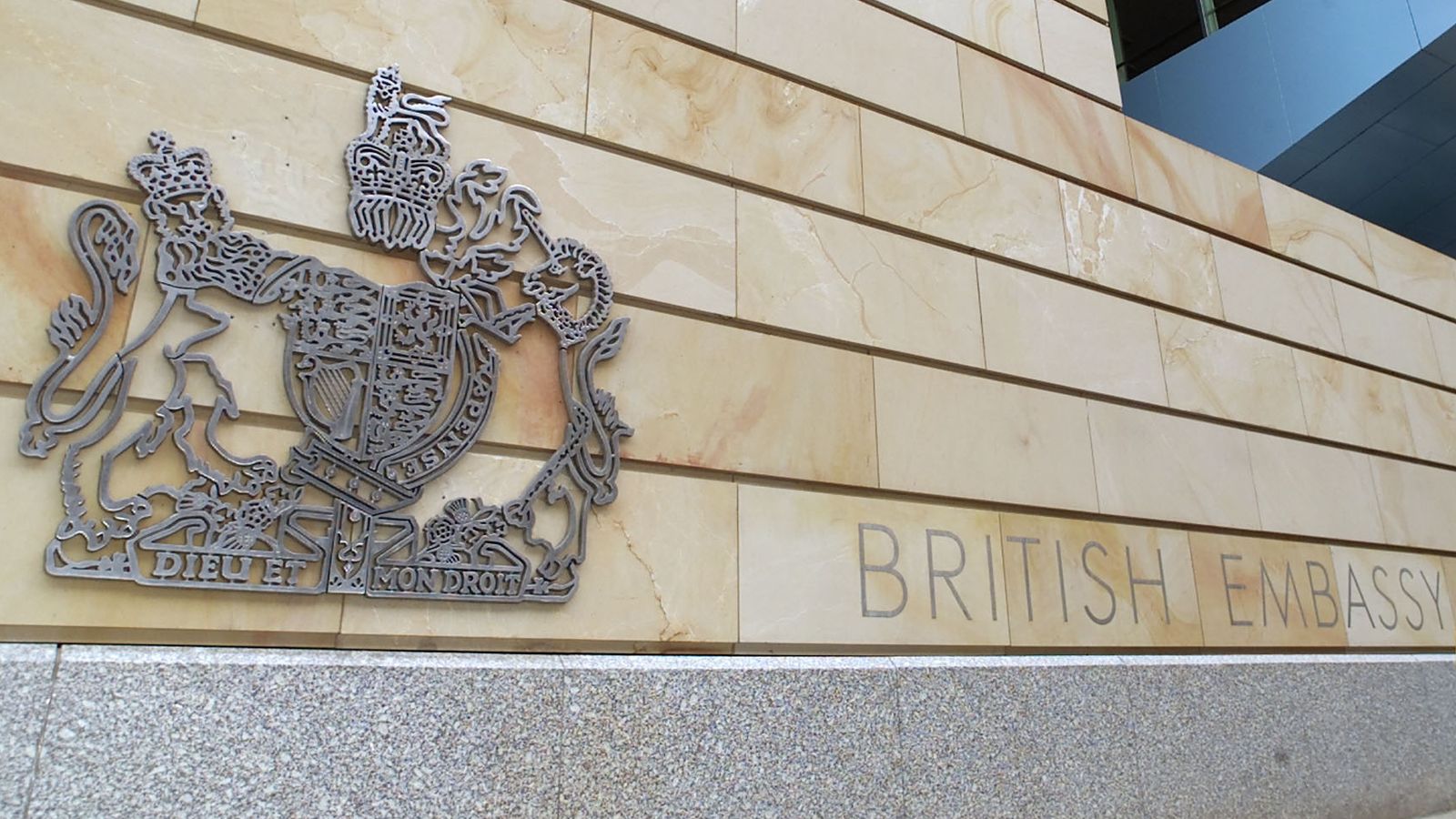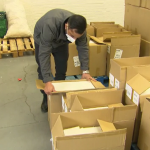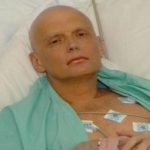A security guard at the British embassy in Berlin has pleaded guilty to breaching the Official Secrets Act after he spent at least 10 months spying for the Russians.
David Ballantyne Smith, 58, was caught in a sting operation and arrested by German police near his home in Potsdam on August 10 last year.
Smith, originally from Paisley near Glasgow, passed secrets to the Russian military attache, including details about the activities, identities, addresses and telephone numbers of various members of the embassy.
The information was said to be intended to be useful to an enemy, namely the Russian state.
In conversations, he is said to have declared that he hated the UK and Germany and expressed anger at the flying of the rainbow flag in support of the LGBTQ+ community.
Police discovered 800 euros in cash in his flat which could not be accounted for and emails and documents marked “secret”, apparently prepared for passing to the Russians.
Smith was finally caught after he was contacted by someone he believed was working for Russian military intelligence, the GRU.
First step towards recession as economy shrinks, official GDP figures show
Nicholas Rossi: Man arrested on COVID ward in Scotland is American rape suspect who faked his own death, court rules
Nation falls silent to remember war dead on Armistice Day
At the Old Bailey on 4 November, Smith pleaded guilty to eight out of nine charges under the Official Secrets Act 1911 and 1920.
Reporting restrictions were lifted on Friday when the prosecution decided not to pursue the remaining charge.
‘This’ll do. I’ll get the rest tomorrow’
Smith had been employed at the embassy in Berlin as a security guard for around eight years.
According to charges against him, Smith communicated with General Major Sergey Chukhurov, the Russian military attache at the Russian Embassy in Berlin, between 31 October and 1 December 2020.
A letter was sent containing a number of documents and images of security passes from the British Embassy in Berlin.
It had been posted from close to Smith’s home address, and handwriting analysis later concluded there was strong support that Smith had written the address and the envelope.
Between 31 October 2020 and 10 August last year, he collected material classified as “secret”, relating to the operation and layout of the British Embassy in Berlin and the activities of the embassy.
On 5 August last year, he was captured on covert CCTV in the security kiosk at the embassy, looking at the CCTV system and filming images of a person referred to as “Dmitry”.
At 8.45pm, the equipment caught him saying to himself: “This’ll do. I’ll get the rest tomorrow.”
Colonel ‘might be able to make use of’ this
He returned the next day when he was again captured on the covert CCTV filming particular sections of the embassy’s system, again capturing Dmitry on the footage.
The same day, he communicated information “to a person” about building repairs to the embassy.
On 9 August, Smith was contacted by a person he believed to be a member of the GRU, and provided them with information about the embassy.
Smith left work early on 10 August, after complaining of feeling unwell and, when he got home to Potsdam, he was arrested by the German police.
Smith’s home address was searched and a number of electronic devices seized which contained the CCTV footage Mr Smith had been seen filming on 5 and 6 August.
There was also a draft letter to Colonel Sivov, a previous Russian military attache, dated 14 May 2020, in which Smith said he worked at the embassy and wanted to remain anonymous.
He offered to provide a book from the defence section classified as “official sensitive,” saying the colonel “might be able to make use of it”.
Police found a video of a walk around the building, images of security equipment, photographs of security passes for staff at the embassy, and personal information about employees.
Posters, whiteboards, and employee contact details
Smith had also collected images of posters and whiteboards in the embassy, including organisational charts and employee contact details, and information about which departments they worked in.
There were also emails and other documentation, marked with a security classification of “secret”.
Police also found a copy of documentation Smith had been asked to photocopy and SIM card packaging he had been asked to dispose of by Dmitry.
Investigators discovered Smith was living beyond his means and was regularly overdrawn but, during the house search, eight 100 Euro notes were found which could not be accounted for by the transaction history on Smith’s bank account.
“It can be inferred that the money came from another source,” prosecutors said.
Smith did not have ‘negative intention against UK’
Matthew Ryder QC, defending, told the hearing on 4 November that there was a “very large difference between the Crown and Mr Smith about motivation, intention and why he did what he did”.
“The seriousness of the allegations are disputed by Mr Smith,” he added, telling the court that Smith did not have any “negative intention against the UK,” he said.
It is understood that he claims to have acted because he had a dispute with staff at the embassy.
Alastair Richardson, prosecuting, told the court: “The distance between the parties is very serious indeed. It is not an admission of the extent of criminality alleged by the Crown.”
A lengthy Newton hearing is now likely to take place in February to determine his sentence.






















